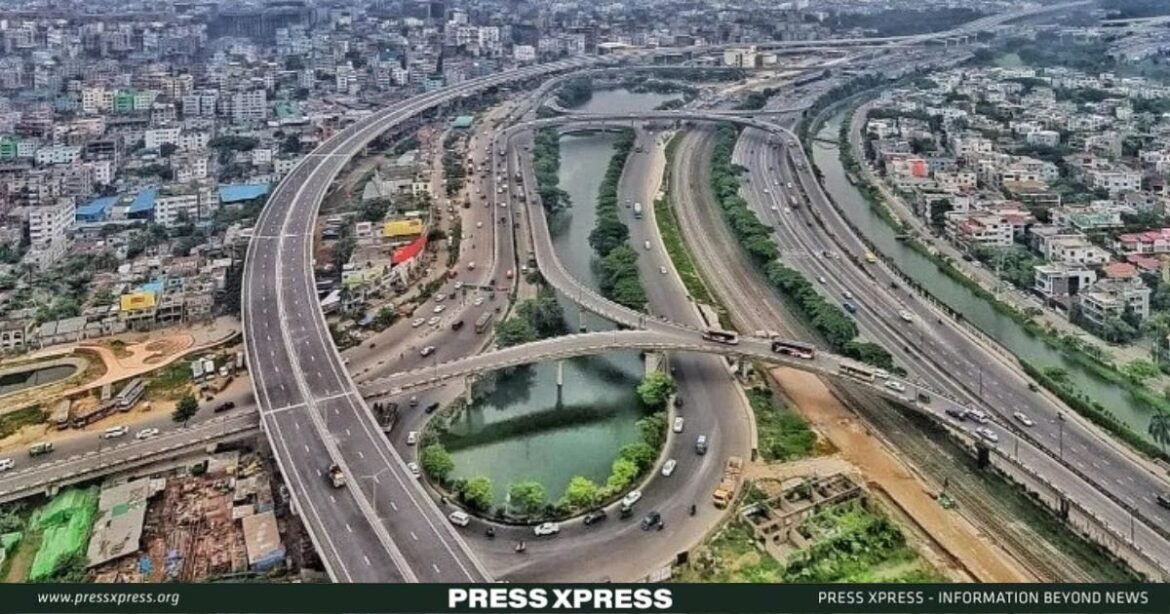Key Highlights
- Prioritize education for workforce empowerment
- Bridge urban-rural divide through focused investments
- Empower SMEs for grassroots economic growth
- Balancing economic growth with environmental conservation
Bangladesh’s economic journey has been truly astounding. Currently ranked 34th globally, it’s poised for an even more remarkable ascent. Projections indicate a climb to 24th place by 2036, solidifying its position as a burgeoning economic force. The pinnacle arrives in 2040, with Bangladesh expected to become the ninth-largest consumer nation worldwide.
The country has indisputably experienced remarkable economic growth in the last 15 years. The period from 2009 to 2023 showcases an impressive surge in GDP per capita, rising from $686 to $2,793. These strides represent a significant transformation, highlighting the nation’s dedication to progress and advancement.
Amid the celebration of economic milestones, attention is firmly directed towards the future. Bangladesh aims to transform into a prosperous and inclusive Smart Bangladesh in the next two decades. Achieving this vision requires a proactive approach focused on ensuring comprehensive growth that benefits every segment of society.
- Bangladesh’s Economic Journey
- Ranked 34th globally
- Projections: 24th place by 2036
- Becoming 9th largest consumer by 2040.
- Economic Transformation (2009-2023)
- GDP per capita surge: $686 to $2,793
- Vision for a Smart Bangladesh
Embracing Inclusive Growth
Amidst the economic celebrations, the spotlight now turns to ensuring that this growth isn’t confined to select segments of society. Inclusive growth is the cornerstone of a sustainable and equitable economy. For Bangladesh to realize its vision of a Smart Bangladesh, it’s crucial to ensure that the benefits of this economic surge are shared by all strata of society.
Smart Government
By 2025, Bangladesh aims for efficient, citizen-centric digital services. By 2041, the government plans a complete shift to paperless, tailored services using Frontier Technology.
The Smart Bangladesh Stack will lead, aiming for over 30% service accessibility by 2025, 50% by 2031, and full 100% by 2041, even in remote areas.
Ministries will adopt smart dashboards by 2025, internalizing them by 2031. By 2041, AI and machine learning will drive government decisions.
Bangladesh aims to climb the UN E-Government Development Index, targeting below 100 by 2025, below 70 by 2031, and below 50 by 2041.
Strategic tech use could boost GDP, targeting over 12% by 2025, surpassing 17% by 2031, and exceeding 22% by 2041.
Smart Bangladesh Tech Roadmap
- Over 30% by 2025
- 50% by 2031
- 100% by 2041 (remote areas)
- Ministry Tech Adoption
- Smart dashboards by 2025
- Internalization by 2031
- AI-driven decisions by 2041
- E-Government Development Index Targets
- Below 100 by 2025
- Below 70 by 2031
- Below 50 by 2041
- Tech Impact on GDP Growth
- Targeting over 12% by 2025
- Surpassing 17% by 2031
- Exceeding 22% by 2041
Investing in Education
Education lies at the heart of empowerment. Building a skilled and knowledgeable workforce is imperative for continued economic advancement. By prioritizing quality education for all, Bangladesh can empower its citizens to actively engage in the workforce and contribute substantially to the nation’s development.
Bridging the Urban-Rural Divide
Rural communities form the backbone of Bangladesh’s cultural and economic fabric. Neglecting these areas in terms of infrastructure, education, and healthcare can hinder overall progress. To bridge the urban-rural gap, focused investments in agricultural modernization, rural education, and healthcare facilities are essential.
Small and medium-sized enterprises (SMEs) are vital cogs in local economies. Policies aimed at nurturing these businesses can catalyze economic growth at the grassroots level, fostering a more equitable distribution of wealth and opportunities.
Sustainable Development
Bangladesh’s commitment to sustainable development must extend to responsible environmental policies. While the nation’s carbon emissions remain minimal, balancing economic growth with environmental preservation is crucial. Striking this balance will not only secure a better future for generations to come but also elevate Bangladesh’s global image as an environmentally conscious nation.
Bangladesh stands at a pivotal juncture, poised to leap into a future characterized by prosperity and inclusivity. Only through a holistic approach—one that prioritizes education, bridges divides, empowers local economies, and champions environmental responsibility—can Bangladesh ensure that its economic success is not just sustained but shared equitably by all its citizens.
As 2024 unfolds, the nation’s commitment to inclusive growth and sustainable development will continue to chart the course towards a brighter and more equitable future for all Bangladeshis.


